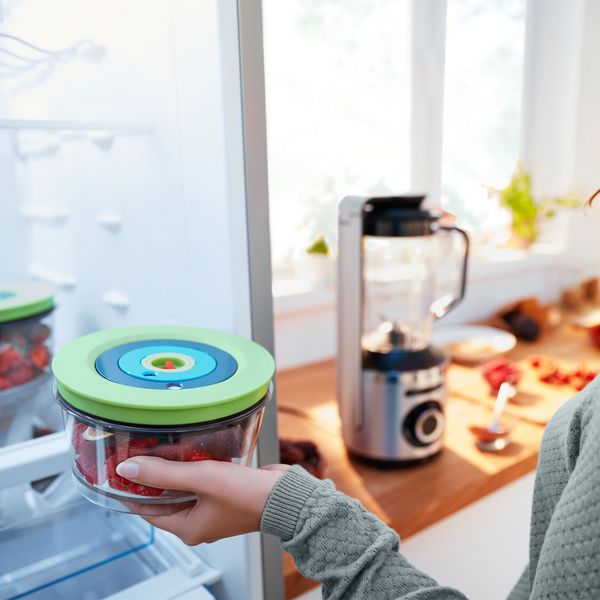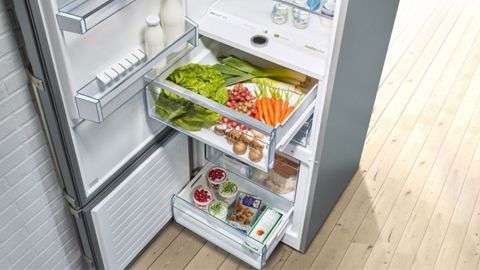Fridge storage is an essential part of our modern home lives. We visit the supermarket, pick up enough fresh food to last the week, and enjoy delicious meals without worrying about spoiled ingredients. Storing leftovers in the fridge or freezer is also how we keep bacteria at bay, so we can get even more out of our weekly haul. But how long can you keep food in the fridge before it becomes unsafe?
Why keep food in the fridge?
1. To reduce bacteria
As we all know, bacteria thrive in warm, moist environments. Popping your food in the fridge is a simple way to stop these pesky organisms from overdeveloping.
Knowing how long specific foods and meals will last in the fridge helps keep yourself and your family safe from food poisoning. Most food poisoning cases aren’t severe and will go away by themselves in a day or two. Still, most of the time, it’s easy to avoid with a bit of know-how about food storage.
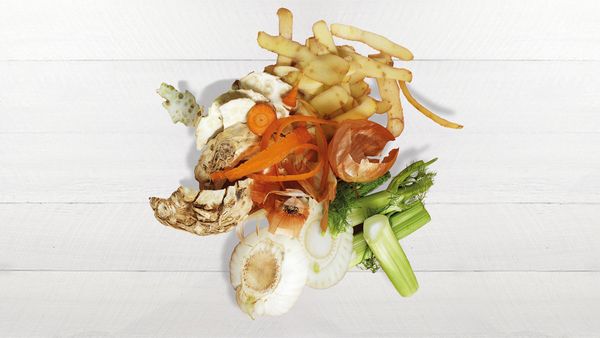
2. To reduce food waste
We’d all like to do our bit for the environment, and reducing food waste is one of the easiest ways to make a difference. Fewer emissions and less pressure on land and water resources? Sounds good.
Closer to home, reducing food waste means more availability for the most vulnerable. Not to mention it’ll save you money.
Find more tips on reducing food waste here.
How long is it safe to keep food in the fridge?
Of course, this varies depending on what type of food you’re planning to store in the fridge. Leftovers, which have been cooked once and then put into the refrigerator, will spoil much more quickly than fresh foods or processed ingredients in unopened packets. Many foods can be kept in the fridge for long periods, while others will need to be consumed within a few days or weeks.
Look for the use-by-date
Most fridge foods, like meat, fish, and cheese, come in packets. Simply look for the use-by date to find out how long you can keep these items in your fridge. For fresh meat and fish, you’ll usually have a week or two to enjoy them after buying. Cheese can last a little longer, although other dairy products, like milk and yoghurt, often have a short use-by window.Look for the use-by-date
Most fridge Look for the use-by-date
Most fridge foods, like meat, fish, and cheese, come in packets. Simply look for the use-by date to find out how long you can keep these items in your fridge. For fresh meat and fish, you’ll usually have a week or two to enjoy them after buying. Cheese can last a little longer, although other dairy products, like milk and yoghurt, often have a short use-by window. like meat, fish, and cheese, come in packets. Simply look for the use-by date to find out how long you can keep these items in your fridge. For fresh meat and fish, you’ll usually have a week or two to enjoy them after buying. Cheese can last a little longer, although other dairy products, like milk and yoghurt, often have a short use-by window.
How long can you keep leftovers in the fridge?
Storing leftovers in the fridge is a different thing altogether. You won’t have a use-by date to rely on when you’ve prepared a meal yourself, and the amount of time it can be safely stored will depend on what’s included.
We’ve answered some of the most-asked fridge-safety questions below, so you can keep your leftovers with confidence and enjoy quick lunches throughout the week.
• How long can I keep smoothies in the fridge? 1 day.
• How long can I keep cooked chicken in the fridge? 2 days.
• How long can I keep cooked turkey in the fridge? 2 days.
• How long can I keep cooked mince in the fridge? 2 days.
• How long can I keep cooked steak in the fridge? 4 days.
• How long can I keep cooked fish in the fridge? 4 days.
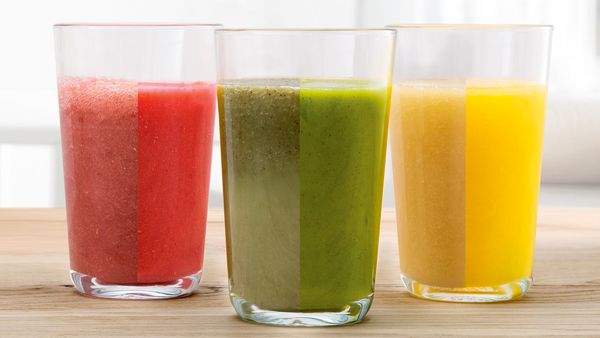
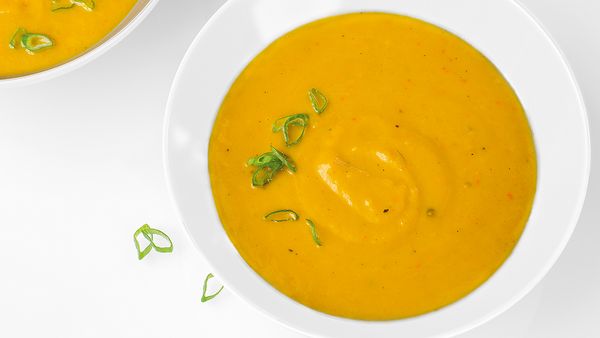
• How long can I keep smoothies in the fridge? 1 day.
• How long can I keep cooked chicken in the fridge? 2 days.
• How long can I keep cooked turkey in the fridge? 2 days.
• How long can I keep cooked mince in the fridge? 2 days.
• How long can I keep cooked steak in the fridge? 4 days.
• How long can I keep cooked fish in the fridge? 4 days.
Suppose you’ve prepared a meal with lots of ingredients, like chicken curry. In that case, you can keep it for as long as it’s shortest fridge-life ingredient is safe. In the case of cooked chicken, this will be two days. If you’ve prepared a vegetable curry, on the other hand, this will be safe for up to seven days.
Preparing meals in advance and storing them safely
Many of us enjoy preparing meals in advance for the week ahead. While it can be tempting to organise all your meals for the week on a Sunday, this might not always be safe. As a rough guide, meal-preps can last in the fridge for up to four days. Just be sure to:
• Let leftovers or meal-preps cool down entirely before putting them in the fridge, but don’t leave them out for more than 2 hours
• Reheat refrigerated foods thoroughly on the stove or in an oven or microwave. Avoid reheating already-cooked foods in a slow cooker
With just a little know-how, reducing the risk of food poisoning has never been simpler. Storing food correctly also helps support the environment by eliminating food waste and can make your weekly budget stretch further. What’s not to love?
VitaFresh - the best fridges for vegetables
VitaFresh’s temperature and humidity controlled compartments enable you to store different fresh foods separately and in the best possible environment.
Our VitaFresh technology helps you keep your vegetables and fruits fresh for longer, resulting in more food to enjoy and less to be wasted. We believe that zero food waste is not only a goal to strive for, but a goal that can actually be achieved.


